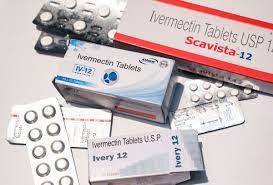
Breaking News
 You better sit down for this one: here's how Biden regime got illegals on commercial flights…
You better sit down for this one: here's how Biden regime got illegals on commercial flights…
 If Trump Does Not Go To War With Iran, We Will Need To Thank One Man
If Trump Does Not Go To War With Iran, We Will Need To Thank One Man
 Rising Capital Controls, Tighter Borders, and What You Can Do About It
Rising Capital Controls, Tighter Borders, and What You Can Do About It
 The substitution of a tariff for the income tax would re-create free Americans
The substitution of a tariff for the income tax would re-create free Americans
Top Tech News
 US particle accelerators turn nuclear waste into electricity, cut radioactive life by 99.7%
US particle accelerators turn nuclear waste into electricity, cut radioactive life by 99.7%
 Blast Them: A Rutgers Scientist Uses Lasers to Kill Weeds
Blast Them: A Rutgers Scientist Uses Lasers to Kill Weeds
 H100 GPUs that cost $40,000 new are now selling for around $6,000 on eBay, an 85% drop.
H100 GPUs that cost $40,000 new are now selling for around $6,000 on eBay, an 85% drop.
 We finally know exactly why spider silk is stronger than steel.
We finally know exactly why spider silk is stronger than steel.
 She ran out of options at 12. Then her own cells came back to save her.
She ran out of options at 12. Then her own cells came back to save her.
 A cardiovascular revolution is silently unfolding in cardiac intervention labs.
A cardiovascular revolution is silently unfolding in cardiac intervention labs.
 DARPA chooses two to develop insect-size robots for complex jobs like disaster relief...
DARPA chooses two to develop insect-size robots for complex jobs like disaster relief...
 Multimaterial 3D printer builds fully functional electric motor from scratch in hours
Multimaterial 3D printer builds fully functional electric motor from scratch in hours
 WindRunner: The largest cargo aircraft ever to be built, capable of carrying six Chinooks
WindRunner: The largest cargo aircraft ever to be built, capable of carrying six Chinooks
Bizarrely low dose Ivermectin still cut infections, hospitalization in half, deaths by 70%

How super low dose ivermectin still reduced infections by half
A whole town in Brazil of 220,000 people was invited to take part in an ivermectin study. In Itajaí 159,000 people said "Yes" to taking part in a study of a bizarrely low dose infrequent form of ivermectin to see if it prevented people catching Covid. They were asked to take the 0.2mg/kg/day dose two days in a row but only once every two weeks. Since the half-life of ivermectin in humans is only 12–36 hours, those taking it in the study were effectively left unprotected at least half the time. Our livers convert ivermectin into chemical bits and pieces that have half-lives of three days, so those downstream metabolites, if they matter, might kick around a bit longer. More bizarrely, participants were asked not to take ivermectin if they got ill. This study appears to be purely about prevention. Despite all this, it still worked.
Compared to all the other towns in the Santa Catarina State of Brazil, Itajaí has the lowest mortality rate, far below even the second lowest.
The iMask prevention plan by the Frontline Covid-19 Critical Care Alliance suggests using the 0.2mg/dose twice a week long term. Those ICU doctors recommend you double the dose if you think you've been exposed for real.
44% lower infection rate
So 113,000 people took ivermectin this way, 45,000 didn't. The infection rate in the ivermectin users was 3.7% which was quite a lot lower than the non-users, of which 6.6% got infected. Imagine if they'd taken ivermectin two times a week instead? The rates of infection in the ivermectin group might have been much lower.
70% lower death rate
The regular use of ivermectin (albeit, very low and infrequent) still saved a lot of lives. The death rate in the ivermectin group was 0.8% compared to 2.6% of the non-users. They controlled for age, sex and co-morbidities.

 RNA Crop Spray: Should We Be Worried?
RNA Crop Spray: Should We Be Worried?

